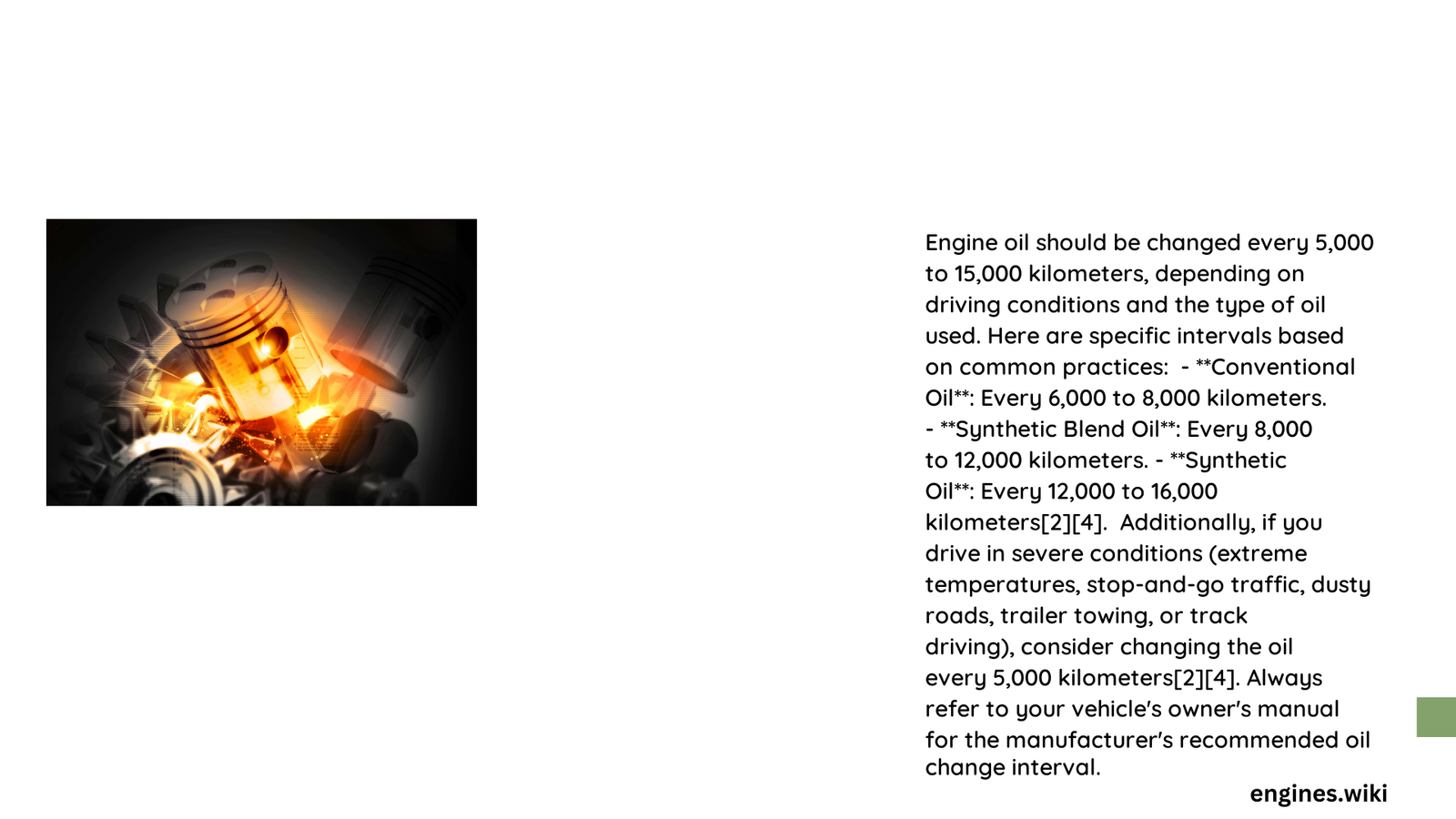Engine oil maintenance is critical for vehicle longevity and performance. Understanding the precise kilometers for oil changes can prevent costly engine damage and ensure smooth operation. Modern vehicles have complex requirements that depend on multiple factors like oil type, driving conditions, vehicle model, and manufacturer specifications.
What Determines the Right Time to Change Engine Oil?
Engine oil change intervals are not universal and depend on several crucial factors:
How Do Manufacturer Specifications Impact Oil Change Frequency?
Manufacturer recommendations vary significantly across different vehicle brands and models. Here’s a comprehensive breakdown:
| Oil Type | Typical Change Interval (Kilometers) | Performance Characteristics |
|---|---|---|
| Conventional Oil | 3,000 – 5,000 km | Basic protection, lower cost |
| Synthetic Blend | 5,000 – 7,500 km | Improved temperature resistance |
| Full Synthetic | 7,500 – 15,000 km | Maximum engine protection |
Key Factors Influencing Oil Change Frequency
- Vehicle Age
- Newer vehicles: Longer intervals (up to 10,000 km)
-
High-mileage vehicles: More frequent changes (every 5,000 km)
-
Driving Conditions
- City driving: More frequent changes
- Highway driving: Less frequent changes
- Extreme temperatures: Potentially shorter intervals
What Are the Signs That Indicate an Immediate Oil Change?
While kilometers provide a general guideline, certain signs suggest immediate oil replacement:
- Dark, dirty oil appearance
- Engine knocking or unusual noises
- Decreased fuel efficiency
- Oil level consistently dropping
- Dashboard oil change indicator illuminated
How Do Different Vehicle Types Require Unique Oil Change Strategies?
Passenger Cars
- Typically follow manufacturer’s recommended interval
- Modern vehicles often have oil-life monitoring systems
- Average interval: 7,500 – 10,000 km
Performance and Luxury Vehicles
- More stringent oil change requirements
- Often use high-performance synthetic oils
- Recommended intervals: 5,000 – 7,500 km
Heavy-Duty Vehicles
- More frequent oil changes due to intense usage
- Recommended interval: 5,000 – 7,500 km
- Regular oil analysis recommended
What Role Does Oil Quality Play in Change Intervals?
Oil quality significantly impacts change frequency:
- High-Quality Synthetic Oils
- Extended protection
- Longer intervals (up to 15,000 km)
-
Better engine cleanliness
-
Standard Conventional Oils
- Basic protection
- Shorter intervals (3,000 – 5,000 km)
- More frequent maintenance required
Pro Tips for Optimal Engine Oil Maintenance
- Always consult your vehicle’s owner manual
- Use high-quality oil matching manufacturer specifications
- Consider your specific driving conditions
- Monitor oil condition regularly
- Use oil analysis services for precise maintenance
Conclusion

Determining when to change engine oil kilometers is not a one-size-fits-all approach. By understanding your vehicle’s unique requirements and monitoring its performance, you can optimize engine health and longevity.
